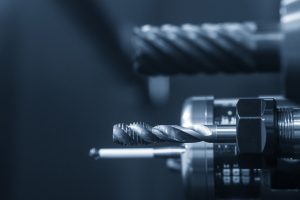What is the Future of CNC Machining?
Oct 01, 2021
Computer Numerical Control (CNC) machining describes an impressive array of technologies providing precision manufacturing capabilities that, until only a few decades ago, would have been unimaginable. Indeed, CNC machines, which operate a variety of tools, such as lathes, drills, and mills, on preprogrammed software have advanced rapidly and continue to do so. Here, we’ll explore what industries such as aerospace, defense, medical technology, and many others that rely on precision manufacturing have to look forward to as CNC machining continues to evolve.
A Brief History of CNC Machining
CNC machining was conceived shortly after World War II; however, the technology was still decades away from widespread adoption, as it was prohibitively expensive. As computational and manufacturing technology advanced, it became clear that CNC machining was the future of precision manufacturing, dramatically reducing production time, costs, and component defects. To learn more about the history and evolution of CNC machining, read our blog post on the subject.
CNC Machining Today
Modern CNC machines have continued to push the boundaries of precision manufacturing, allowing for fast, customized, defect-free production of tight-tolerance components in large quantities. One example of CNC machining advancements is the evolution from 2- and 3-axis configurations in which the workpiece is in a fixed position, to 5-axis configurations in which the workpiece and tool can rotate, providing much greater flexibility and efficiency.
CNC Machining & Precision Manufacturing—Looking Forward
Precision CNC machining is among the fastest evolving industries in the world, which translates to exciting advancements in both the near and long term. In general, the goal of improvements in CNC machining technologies is to make production faster, more accurate, and more customizable while reducing waste.
Customizing manufacturing programs to produce precisely machined components has a number of challenges that can be a drag on efficiency. For example, to prevent the delays associated with ordering custom tools, some facilities are moving towards in-house tool production. The capacity to create tools that are tailored to specific manufacturing processes has the potential to not only significantly increase the efficiency of manufacturing, but also provide greater accuracy.
Additionally, whereas traditional precision machining processes have involved single machines, technology is beginning to evolve that will allow synchronized machining capabilities. In combination with modern 5-axis machining, such advancements have the potential to revolutionize manufacturing by dramatically increasing production speed and allowing more flexible component prototyping.
Finally, CNC manufacturing programs will continue to optimize for specific materials. Combined with progress in prototyping and custom tool production, optimizing machines for materials will allow for much greater accuracy and allow for tighter tolerances. In turn, this will push the boundaries of the technologies that can be produced in industries ranging from aerospace and defense to medical and industrial automation.
Learn More About Modern CNC Machining Capabilities
When it comes to precision machining, Demmer Manufacturing’s portfolio companies are at the leading edge. As CNC technology advances, our affiliates will continue to be leaders in innovation, ensuring unparalleled precision, quality control, and continuity of supply. To learn more about what our precision manufacturing companies are capable of, browse our portfolio page and visit our affiliates’ websites.

